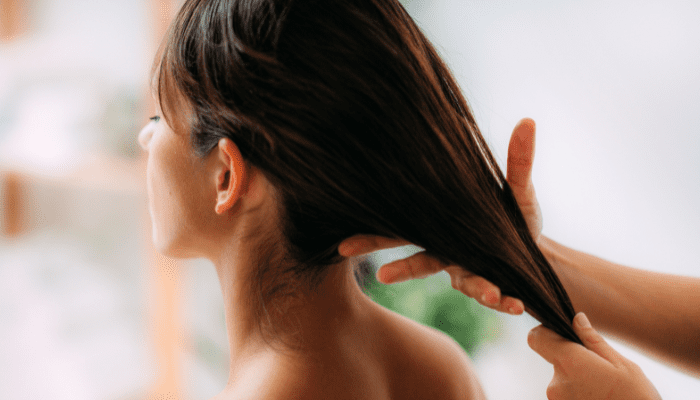Hair growth supplements that work. When it comes to promoting hair growth, many people turn to supplements as a potential solution. However, the effectiveness of these supplements can vary, as they depend on individual factors. In this article, we will explore the world of hair growth supplements and provide you with the information you need to make informed decisions.

While nutrition is important for overall hair health, certain vitamins and minerals may be necessary to address deficiencies associated with hair loss. However, it’s essential to note that supplement use should always be individualized and guided by healthcare professionals.
One specific supplement that has shown promising results is zinc. Research suggests that zinc supplements can promote hair regrowth in individuals with hair loss and low zinc levels. The recommended daily amount of zinc varies by gender and life stage, and it can also be obtained through food sources like meat, fish, and seafood.
In this article, we will also discuss the role of zinc in hair health, the importance of a balanced diet for promoting hair growth, the ingredients commonly found in hair-growth supplements, and the clinical evidence surrounding their effectiveness.
Key Notes
- Supplement use for hair growth should be individualized and guided by healthcare professionals.
- Zinc supplements may promote hair regrowth in individuals with hair loss and low zinc levels.
- A balanced diet rich in essential nutrients is crucial for healthy hair growth.
- Hair-growth supplements contain various ingredients such as vitamins, minerals, proteins, and botanicals.
- Clinical studies have shown promising results for certain hair-growth supplements.
The Role of Zinc in Hair Health
Zinc is an essential mineral that plays a significant role in maintaining hair health. Low levels of zinc have been associated with hair loss, and supplementing with zinc may help promote hair regrowth in individuals with hair loss and zinc deficiency. However, it’s important to note that not all research supports this claim, and the effectiveness of zinc supplements may vary depending on individual factors.

To ensure optimal hair health, it is recommended to consume the daily recommended amount of zinc. The recommended daily amount of zinc differs by gender and life stage, with an average range of 8-12 mg. Zinc can be obtained through various food sources such as oysters, beef, breakfast cereals, and pumpkin seeds. However, it’s important to consider that the absorption of zinc can be influenced by factors like food sources and plant-based diets.
“Zinc is an essential micronutrient that supports immune function and wound healing, and it is also crucial for healthy hair growth.”
If you are considering supplementing with zinc for hair health, it is advisable to consult with healthcare professionals to determine the appropriate dosage and duration. They can help assess your individual nutrient needs, identify any deficiencies, and provide personalized recommendations. Additionally, they can assist in monitoring your progress and adjusting the supplement regimen if needed.
The Role of Zinc in Hair Health – Summary
- Zinc is essential for maintaining hair health and is one of our top hair growth supplements that work.
- Low levels of zinc have been associated with hair loss.
- Supplementing with zinc may promote hair regrowth in individuals with zinc deficiency and hair loss.
- Zinc can be obtained through various food sources such as oysters, beef, breakfast cereals, and pumpkin seeds.
- Consult with healthcare professionals for personalized recommendations on zinc supplementation for hair health.
| Zinc-Rich Foods | Amount of Zinc per 100g |
|---|---|
| Oysters | 78.6mg |
| Beef | 7-10mg |
| Breakfast Cereals (fortified) | 3-8mg |
| Pumpkin Seeds | 7.6mg |
The Importance of a Balanced Diet for Hair Health
A balanced diet rich in essential nutrients is crucial for healthy hair growth. Nutrition plays a vital role in maintaining the strength, thickness, and overall health of our hair. While supplements can provide specific vitamins and minerals, it is important to focus on obtaining these nutrients through our daily food intake.
Key Nutrients for Hair Health
Protein is a key component of hair structure and growth. It is important to consume an adequate amount of protein from sources such as lean meat, poultry, seafood, eggs, dairy products, tofu, and legumes. Iron is also essential for hair health, as it helps deliver oxygen to hair follicles. Foods rich in iron include lean meat, seafood, fortified cereals, and dark leafy greens. Additionally, incorporating foods high in omega-3 fatty acids, such as fatty fish like salmon and sardines, can help promote healthy hair growth.
The Role of Nutrition in Hair Loss Prevention
Deficiencies in certain nutrients can contribute to hair loss. Iron deficiency, for example, has been linked to hair loss and thinning. By ensuring an adequate intake of iron-rich foods, we can help prevent hair loss and promote hair regrowth. It is important to note that excessive amounts of certain nutrients, such as vitamin A, can have adverse effects on hair health, so it is best to obtain these nutrients through a balanced diet rather than relying solely on supplements.
| Nutrient | Food Sources |
|---|---|
| Protein | Lean meat, poultry, seafood, eggs, dairy products, tofu, legumes |
| Iron | Lean meat, seafood, fortified cereals, dark leafy greens |
| Omega-3 fatty acids | Fatty fish (salmon, sardines), chia seeds, walnuts |
It is important to remember that hair health is multifactorial, and factors such as genetics, hormones, and overall health also play a role. While supplements may have some benefits, it is best to focus on a holistic approach to hair health, incorporating a well-rounded diet and healthy lifestyle practices for optimal results.
Hair Growth Supplements That Work and Their Ingredients
Hair-growth supplements are formulated with various ingredients that are believed to promote hair growth. These supplements often contain a combination of vitamins, minerals, proteins, amino acids, and botanicals. Let’s take a closer look at some of these key ingredients and their potential benefits for hair health:
Vitamins
Vitamins play a crucial role in supporting hair growth and overall hair health. Some vitamins commonly found in hair growth supplements that work for hair growth include:
- Vitamin A: Supports the production of sebum, which keeps the scalp moisturized.
- Vitamin B: Helps promote healthy blood circulation to the scalp.
- Vitamin C: Supports the production of collagen, a protein that strengthens hair strands.
- Vitamin D: Helps in the formation of new hair follicles.
- Vitamin E: Acts as an antioxidant, protecting hair follicles from oxidative stress.
Minerals
Minerals are essential for maintaining healthy hair growth. Some minerals commonly found in hair growth supplements that work include:
- Iron: Supports the transport of oxygen to the hair follicles.
- Selenium: Helps protect hair follicles from damage caused by oxidative stress.
- Zinc: Aids in DNA and protein synthesis, essential for hair growth.
Botanicals
Botanical ingredients derived from plants and herbs are also frequently included in hair health supplements. Some botanicals believed to promote hair growth include:
- Curcumin: Has anti-inflammatory properties that may help promote hair growth.
- Saw palmetto: May inhibit the production of a hormone linked to hair loss. One of the more popular hair health supplements for males.
- Ashwagandha: Has been traditionally used to promote hair health and reduce hair loss.
While these ingredients show potential for promoting hair growth, it’s important to note that individual results may vary. It’s advisable to choose supplements from reputable brands and consult with healthcare professionals to ensure the best possible outcomes in promoting hair health.
Clinical Evidence for Hair-Growth Supplements
When it comes to choosing hair-growth supplements, it’s essential to consider the clinical evidence supporting their effectiveness. Several supplement brands have undergone clinical studies, showing promising results in promoting hair growth and reducing hair loss.
One such brand is Nutrafol, which has been shown to support hair growth in both men and women. Clinical studies have demonstrated that Nutrafol’s proprietary blend of botanical ingredients, vitamins, minerals, and antioxidants can help improve hair density and thickness.
“Nutrafol is unique because it combines the latest advancements in hair science with natural, clinically tested ingredients. Our formula addresses multiple factors that contribute to hair loss and helps to promote healthy hair growth.” – Dr. Sophia Kogan, Co-founder and Chief Medical Advisor at Nutrafol
Another supplement brand with potential hair-growth benefits is Nourkrin. This brand’s products contain a combination of marine extracts, vitamins, and minerals that have been clinically proven to support hair growth. Studies have shown that Nourkrin can help reduce hair shedding and improve hair volume and thickness.
While these supplement brands show promise, it’s important to note that individual results may vary. Factors such as genetics, lifestyle, and overall health can influence the effectiveness of hair-growth supplements. It’s always recommended to consult with healthcare professionals before starting any new supplement regimen to ensure safety and maximize potential benefits.
| Supplement Brand | Potential Benefits |
|---|---|
| Nutrafol | Promotes hair growth, improves hair density and thickness |
| Nourkrin | Reduces hair shedding, improves hair volume and thickness |
Hair Growth Supplements vs. Multivitamins
Best Hair Growth Supplements vs Generic Multi Vitamins. When it comes to promoting hair health, many individuals wonder whether they should opt for hair-growth supplements or stick to multivitamins. Both options can provide essential nutrients for healthy hair growth, but there are some key differences to consider.
Benefits of Multivitamins for Hair Health
Multivitamins are formulated to provide a comprehensive range of vitamins and minerals that support overall health, including hair health. They often contain key nutrients like zinc, iron, B vitamins, and vitamin D, which are important for promoting healthy hair growth. Multivitamins are a convenient option for individuals who want to ensure they are getting a balanced intake of essential nutrients on a daily basis.
Hair Growth Supplements That Work: Targeted Approach
On the other hand, effective hair growth supplements are specifically marketed to target hair health and may contain a combination of vitamins, minerals, and botanicals believed to promote hair growth. These supplements are designed with the specific goal of enhancing hair health and may have higher concentrations of certain nutrients known to support hair growth. However, it’s important to note that the effectiveness of hair-growth supplements can vary widely between individuals, and more research is needed to establish their efficacy.
| Multivitamins | Hair-Growth Supplements | |
|---|---|---|
| Composition | Comprehensive range of essential nutrients for overall health | Combination of vitamins, minerals, and botanicals targeting hair growth |
| Efficacy | Supports overall health, including hair health | Effectiveness can vary between individuals |
| Convenience | Convenient daily intake of essential nutrients | Specifically formulated for hair health |
While multivitamins provide a comprehensive range of nutrients for overall health, natural hair growth supplements offer a targeted approach specifically designed to enhance hair health. Both options can be beneficial, but it’s important to consider individual needs and preferences when choosing between the two.
In conclusion, there is no one-size-fits-all answer to the question of whether to choose the top-rated hair growth supplements or multivitamins for hair health. It is essential to assess individual nutrient needs, consult with healthcare professionals, and consider personal preferences to determine the most suitable approach. Ultimately, healthy hair growth is best achieved through a holistic and personalized approach that incorporates proper nutrition, lifestyle practices, and appropriate supplementation, internally and topically using a combination of hair growth products.
The Role of Nutrition and Lifestyle in Hair Health
When it comes to maintaining healthy hair, nutrition and lifestyle factors play a vital role. A balanced diet that includes essential nutrients such as vitamins, minerals, and protein is crucial for promoting hair growth and preventing hair loss. Ensuring an adequate intake of these nutrients can provide the building blocks necessary for strong and lustrous hair.
In addition to nutrition, adopting hair-care practices that prioritize the health of your hair can contribute to its overall well-being. Gentle hair-care practices, such as avoiding harsh chemicals and minimizing heat styling, can help prevent breakage and damage. By treating your hair with care and avoiding practices that cause unnecessary stress, you can support healthy hair growth.
“Good nutrition is key to maintaining healthy hair, as well as a healthy body overall.”
It’s important to note that hair health can also be influenced by other factors, including genetics, hormonal changes, stress, and underlying medical conditions. Identifying the underlying cause of hair loss, whether it’s related to genetics or a health condition, is crucial for determining the appropriate treatment options. Taking a holistic approach that addresses all of these factors can help optimize hair health and promote long-term growth.
| Nutrient | Foods |
|---|---|
| Protein | Lean meat, seafood, dairy, tofu, tempeh, legumes |
| Iron | Lean meat, seafood, fortified cereals |
| Vitamin D | Fatty fish (salmon, sardines) |
| Vitamin A | Carrots, sweet potatoes, spinach |
| Vitamin C | Citrus fruits, strawberries, bell peppers |
By prioritizing nutrition and adopting healthy hair-care practices, you can support the growth and overall health of your hair. Remember, everyone’s hair is unique, so it’s important to find a routine and lifestyle that works for you. Consult with healthcare professionals for personalized recommendations tailored to your specific needs and goals.
The Risks and Considerations of Hair-Growth Supplements
While hair-growth supplements are generally considered safe, it’s important to be aware of the potential risks and considerations before starting any new regimen. Here are some important factors to consider:
Potential Interactions with Medications
Some hair-growth supplements may interact with certain medications, impacting their effectiveness. For example, supplements containing zinc may interfere with the absorption of antibiotics and diuretics. It’s crucial to consult with healthcare professionals, such as pharmacists or doctors, to determine if any potential interactions may occur with your current medication regimen.
Allergic Reactions
Supplements can contain various ingredients, and some individuals may have allergies or sensitivities to certain substances. Zinc, in particular, has been known to cause allergic reactions in some people. It’s essential to read the ingredient list carefully and discontinue use if any adverse reactions, such as rash, itching, or swelling, occur. Seeking medical advice is recommended if you experience any allergic symptoms.
Choosing Reputable Brands
When considering hair growth supplements for women, it’s important to choose products from reputable brands that undergo third-party testing for purity and potency. This ensures that you are getting a high-quality product that meets safety standards. Look for supplements that are certified by organizations such as NSF International, USP, or ConsumerLab.
| Potential Risks of Hair-Growth Supplements | Considerations |
|---|---|
| Interactions with Medications | Consult with healthcare professionals to ensure no interactions occur with current medications |
| Allergic Reactions | Read ingredient lists carefully; discontinue use if allergic symptoms occur |
| Choosing Reputable Brands | Select supplements from brands that undergo third-party testing for purity and potency |
By being aware of these potential risks and considering the necessary precautions, individuals can make informed decisions when it comes to using hair-growth supplements. Always consult with healthcare professionals before starting any new supplement to ensure safety and minimize potential risks.
Supplement Recommendations for Different Life Stages
At different stages of life, our bodies have varying nutrient needs, and this applies to our hair health as well. Whether you’re a woman, a man, or experiencing postpartum hair loss, there are supplement recommendations tailored to your specific needs.
Hair Growth Supplements that work for Women
Women may benefit from hair growth supplements that address their unique hormonal and nutritional requirements. These supplements often contain vitamins and minerals such as biotin, iron, and collagen, which support hair health and growth. By incorporating these supplements into their routine, women can provide their hair with the necessary nutrients it needs to thrive.
Hair Growth Supplements that work for Men
Men also have specific nutrient needs when it comes to hair health. Supplements for men commonly focus on supporting male pattern baldness and promoting healthy hair growth. These supplements may include ingredients like saw palmetto, pumpkin seed extract, and specific vitamins and minerals that target hair health in men.
Hair Loss Supplements that work for Postpartum
Postpartum hair loss is a common concern among new mothers, and certain supplements can help address this issue. These supplements often contain nutrients like biotin, iron, and vitamins A and D, which aid in strengthening hair and promoting regrowth after childbirth. While consultating with healthcare professionals is important, incorporating postpartum hair loss supplements into a new mother’s routine can support healthy hair recovery.
The Importance of a Holistic Approach to Hair Health
When it comes to promoting healthy hair growth, taking a holistic approach is key. Incorporating nutrition and lifestyle factors into your hair care routine can have a significant impact on the overall health of your hair. While supplements may play a role in supporting hair growth, they are only one piece of the puzzle.
By focusing on a well-rounded approach, you can ensure that your hair is getting the nutrients it needs from the inside out. This includes maintaining a balanced diet that is rich in essential vitamins and minerals, such as zinc, iron, and B vitamins. Foods like lean meats, seafood, leafy greens, and whole grains can provide these necessary nutrients for healthy hair growth.
In addition to nutrition, lifestyle factors should not be overlooked. Gentle hair care practices, such as minimizing heat styling and avoiding harsh chemicals, can help prevent breakage and damage to the hair. Managing stress levels and addressing underlying health conditions can also contribute to overall hair health.
Remember, a holistic approach to hair health takes into account all aspects of your lifestyle and well-being. By incorporating nutrition and lifestyle factors into your hair care routine, you can promote healthy hair growth and achieve the luscious locks you desire.
References:
- “Zinc in diet.” MedlinePlus. https://medlineplus.gov/ency/article/002416.htm
- “Healthy Eating for a Healthy Scalp.” American Academy of Dermatology Association. https://www.aad.org/public/everyday-care/…
- “Hair loss.” Mayo Clinic. https://www.mayoclinic.org/diseases-conditions/hair-loss/symptoms-causes/syc-20372926
Personalized Approach to Hair Growth Supplements that for work for you!
When it comes to choosing the right hair-growth supplements, a personalized approach is essential. Every individual has unique nutrient needs, and consulting with healthcare professionals can help ensure that the right supplements are selected based on factors such as gender, life stage, overall health, and potential interactions with medications. By seeking professional guidance, you can obtain personalized recommendations for a hair-growth supplement regimen that suits your specific needs.
Healthcare professionals, such as registered dietitian nutritionists or dermatologists, can assess your individual nutrient requirements, identify any deficiencies, and recommend the appropriate supplements to promote healthy hair growth. They have the expertise to guide you through the vast array of supplements available and help you make informed choices. Working together with healthcare professionals ensures that you are taking the right supplements in the right amounts, maximizing the effectiveness of your hair-growth regimen.
Remember, a personalized approach is crucial because what works for one person may not work for another. By consulting healthcare professionals, you can tailor your hair-growth supplement regimen to your specific needs and increase the likelihood of achieving the desired results. Don’t hesitate to reach out for expert advice when it comes to choosing the best supplements for your hair health.
| Benefits of a Personalized Approach to Hair-Growth Supplements that work |
|---|
| Customized supplement recommendations based on individual nutrient needs |
| Expert guidance in selecting the right supplements for maximum effectiveness |
| Minimization of potential interactions with medications |
| Increased chances of achieving desired results through targeted supplementation |
Summary of Hair Growth Supplements that Work
In conclusion, the effectiveness of hair growth supplements that work for thinning hair can vary depending on individual factors such as genetics, overall health, and lifestyle. While some research suggests that certain vitamins, minerals, and botanicals may promote hair growth, more studies are needed to confirm their effectiveness. It’s important to choose supplements from reputable brands and consult with healthcare professionals before starting any new regimen.
Nutrition plays a crucial role in hair health, and a balanced diet rich in essential nutrients is essential for healthy hair growth. Protein, iron, and omega-3 fatty acids are particularly important for hair health. Additionally, practicing gentle hair-care practices and addressing underlying health conditions are key factors in maintaining strong and luscious locks.
When considering hair growth supplements, it’s important to weigh the benefits against potential risks and interactions with medications. Reputable brands that undergo third-party testing for purity and potency should be chosen. Allergic reactions to supplement ingredients, especially zinc, can occur in individuals with allergies or sensitivities. Consulting with healthcare professionals is crucial to ensure safety and determine the best supplement option for promoting hair growth and overall health.

In summary, taking a holistic approach to hair health, which includes proper nutrition, gentle hair-care practices, and addressing underlying health conditions, is essential for optimal results. While supplements can support hair growth, they should be considered as part of a comprehensive plan that includes lifestyle modifications and personalized recommendations from healthcare professionals. By taking these steps, individuals can enhance their chances of achieving healthy and vibrant hair.
FAQ
Q: Are hair-growth supplements effective?
A: The effectiveness of hair-growth supplements varies and depends on individual factors such as genetics, lifestyle, and overall health.
Q: What role does zinc play in hair health?
A: Zinc is important for hair growth as it supports immune function, cell turnover, and wound healing. Low levels of zinc have been associated with hair loss.
Q: How can I incorporate a balanced diet for hair health?
A: A balanced diet that includes essential nutrients like protein, iron, and omega-3 fatty acids is crucial for healthy hair growth.
Q: What ingredients are commonly found in hair growth supplements that work?
A: Hair growth supplements that work best may contain vitamins, minerals, proteins, amino acids, and herbs and botanicals believed to support hair growth.
Q: Is there clinical evidence supporting the use of hair growth supplements that work?
A: Some supplement brands have shown promising results in promoting hair growth and reducing hair loss, but more studies are needed for conclusive evidence.
Q: Should I choose hair-growth supplements or multivitamins?
A: The choice between hair-growth supplements and multivitamins depends on individual needs and preferences, and consulting with healthcare professionals is recommended.
Q: What other factors besides supplements impact hair health?
A: Nutrition, hair care practices, genetics, hormonal changes, stress, and underlying medical conditions can all impact hair health.
Q: Are there any risks associated with hair-growth supplements?
A: While hair-growth supplements are generally considered safe, there can be potential risks such as interactions with medications and allergic reactions.
Q: Are there specific supplements for different life stages?
A: Yes, there are supplements formulated for postpartum hair recovery, as well as supplements catered to male hair growth.
Q: How important is a holistic approach to hair health?
A: Taking a holistic approach that includes nutrition, lifestyle factors, and addressing underlying health conditions is crucial for optimal hair health.
Q: Should I personalize my supplement regimen?
A: Yes, a personalized approach to hair-growth supplements is recommended to ensure individual nutrient needs and potential interactions are taken into account.




